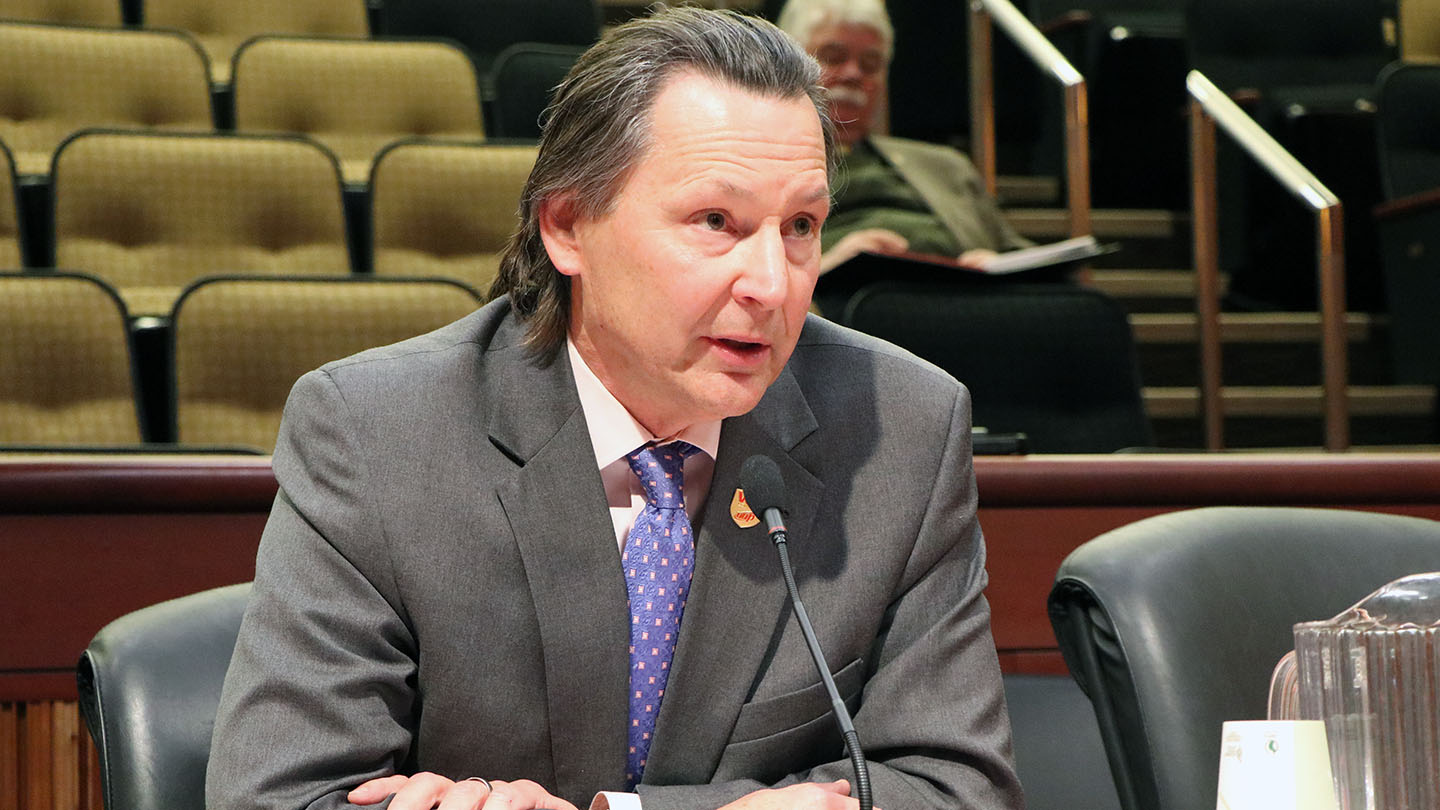November 13, 2019

SUNY is “uniquely positioned” to lead the state as New York transitions to renewable energy sources and works to meet the mandates of the sweeping Climate Leadership and Community Protection Act.
That statement was part of testimony UUP President Fred Kowal delivered at a Nov. 13 joint hearing by the state Assembly standing committees on Higher Education and Environmental Conservation. The hearing examined the environmental footprint of colleges and universities in New York, how they will reduce that impact, and how campuses can use state funding to reach those mitigation goals.
“When it comes to combating climate change, half-step measures are worthless,” said Kowal. “SUNY can lead the way to a carbon-free future by aggressively pushing to achieve complete carbon neutrality. We believe this can be done, sooner rather than later.
“UUP’s position is that there is a necessity for SUNY to lead the way.”
Kowal also proposed making SUNY’s College of Environmental Science and Forestry a leader in battling climate change by expanding green technology programs and creating new ones at the Syracuse campus.
And he pushed for the creation of a pilot program to set up battery storage and microgrids on select SUNY campuses. Once operational, the microgrids could supply clean energy cheaply to community members, spurring economic development and growth.
The chairs of the two committees, Assemblymember Deborah Glick (D-Manhattan) and Assemblymember Steve Englebright (D-Setauket), said they were intrigued by Kowal’s proposals and showed support for them.
“You have given us much to think about,” Engelbright told Kowal.
Englebright also congratulated Kowal and UUP for the union’s strong support of the CLCPA, which the governor signed into law in July. The law is one of the most aggressive legal mandates for emissions reductions; it calls for New York to be carbon-free by 2040 and have a net-zero carbon economy by 2050.

